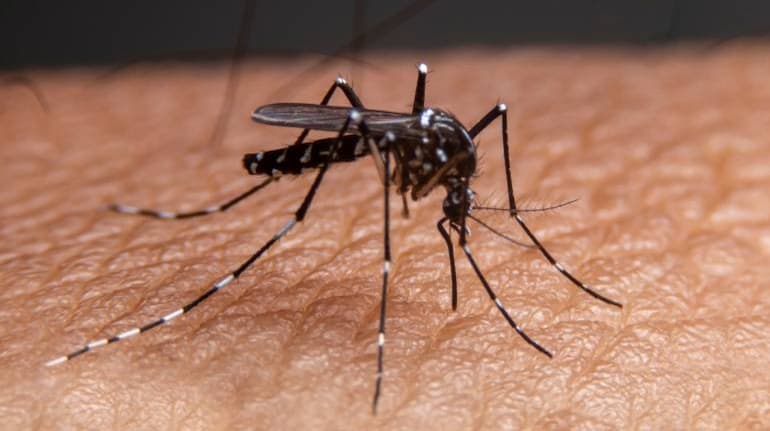



As the monsoon season brings relief from the scorching heat and school holidays, it also welcomes unwanted guests in the form of mosquitoes and pests. While schools may enjoy the luxury of declaring holidays during heavy rain, office-goers mostly have no choice but to continue with their routines. Unfortunately, this exposes them to the risk of various diseases such as malaria, dengue, and chikungunya. Among these, dengue cases have been increasing in recent times.
Dengue presents itself with symptoms that are similar to other illnesses, including fever, aches and pains, and rashes. The most common symptom of dengue is fever along with other signs like nausea, vomiting, skin rashes and muscle, joint or bone aches. These symptoms typically last for 2 to 7 days. However, prioritising dengue prevention at home and in the workplace, like keeping pesky insects and mosquitoes away, is crucial to create safer and healthier environments for everyone.
Here are some preventive tips to protect yourself from dengue fever in the workplace.
Drain stagnant water: While having office plants can create a pleasant atmosphere, it's important to not let the pots become breeding grounds of mosquitoes. Ensure that planters or pots don't collect water in their trays, as stagnant water attracts mosquitoes to breed. Regularly empty standing water and keep containers and trays dry to minimise the risks.
Dehumidify: Use portable dehumidifiers, and target spaces that feel hot, damp, or humid. By removing excess moisture in the air, you can create an inhospitable environment for mosquitoes to breed and thrive.
Fumigation: Fumigation kills adults mosquitoes and disrupts the breeding cycle by targeting larvae and eggs. Additionally, fumigation treatments have a long-lasting effect, providing ongoing protection against mosquitoes even after the initial treatment. This helps in keeping the workplace mosquito-free for an extended period.
Keep doors and windows shut: Encourage everybody in the office to keep doors and windows shut to prevent mosquitoes from entering the premises. If this isn't practical, then ensure that windows and doors have screens that act as barriers.
Use chemical repellents: Protect yourself from mosquito bites by applying a reliable chemical mosquito repellent spray. Make sure you follow the instructions on the product label for safe and effective use.
Go natural: Mosquitoes cannot tolerate the smell of some herbs. Create your own natural mosquito repellent spray by combining a few drops of lavender, lemon, mint, or eucalyptus oil with one cup of water. Spray the solution under tables and around the surroundings for added protection. Alternatively, place a shallow bowl of water with a few drops of peppermint oil near your desk. This infusion of essential oil will help keep mosquitoes away. You can also create a mosquito-killing solution by mixing dish soap with water in a bowl.
Plant mosquito-repellent plants: Consider adding some plants, like the Citronella plant, to your outdoor spaces for their natural deterrent properties. Citronella plants' leaves give out a powerful citrus aroma that naturally repels mosquitoes. It also emits a pleasant citrus fragrance making it an ideal addition to your outdoor spaces.
Discover the latest Business News, Sensex, and Nifty updates. Obtain Personal Finance insights, tax queries, and expert opinions on Moneycontrol or download the Moneycontrol App to stay updated!
Find the best of Al News in one place, specially curated for you every weekend.
Stay on top of the latest tech trends and biggest startup news.